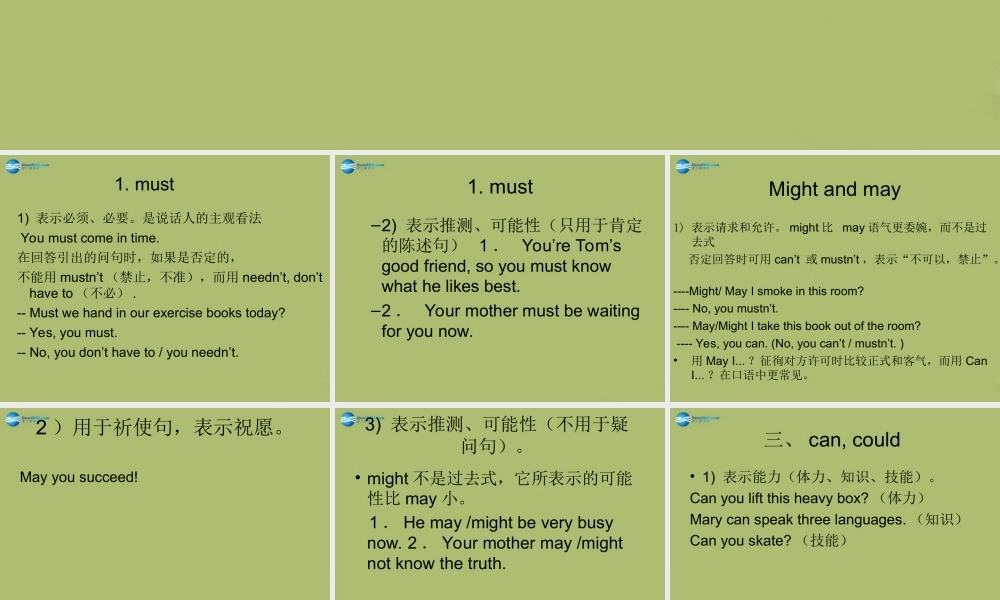情态动词复习1. must1) 表示必须、必要。是说话人的主观看法 You must come in time. 在回答引出的问句时,如果是否定的,不能用 mustn’t (禁止,不准),而用 needn’t, don’t have to (不必) . -- Must we hand in our exercise books today? -- Yes, you must. -- No, you don’t have to / you needn’t. 1. must–2) 表示推测、可能性(只用于肯定的陈述句) 1 . You’re Tom’s good friend, so you must know what he likes best. –2 . Your mother must be waiting for you now. Might and may1) 表示请求和允许。 might 比 may 语气更委婉,而不是过去式 否定回答时可用 can’t 或 mustn’t ,表示“不可以,禁止”。 ----Might/ May I smoke in this room? ---- No, you mustn’t.---- May/Might I take this book out of the room? ---- Yes, you can. (No, you can’t / mustn’t. ) •用 May I... ?征徇对方许可时比较正式和客气,而用 Can I... ?在口语中更常见。 2 )用于祈使句,表示祝愿。May you succeed! 3) 表示推测、可能性(不用于疑问句)。• might 不是过去式,它所表示的可能性比 may 小。 1 . He may /might be very busy now. 2 . Your mother may /might not know the truth. 三、 can, could • 1) 表示能力(体力、知识、技能)。Can you lift this heavy box? (体力)Mary can speak three languages. (知识)Can you skate? (技能) • 此时可用 be able to 代替。 Can 只有一般现在时和一般过去式;而 be able to 则有更多的时态。 I’ll not be able to come this afternoon. • 当表示“经过努力才得以做成功某事”时应用 be able to ,不能用 Can 。如: He was able to go to the party yesterday evening in spite of the heavy rain. 2) 表示请求和允许。• -----Can I go now?• ----- Yes, you can. / No, you can’t. 此时可与 may 互换。在疑问句中还可用 could, might 代替,不是过去式,只是语气更委婉,不能用于肯定句和答语中。 ---- Could I come to see you tomorrow? ---- Yes, you can. ( No, I’m afraid not. ...




